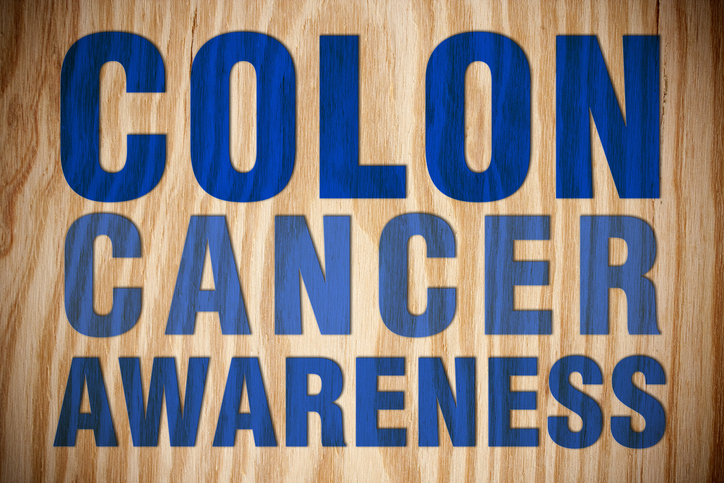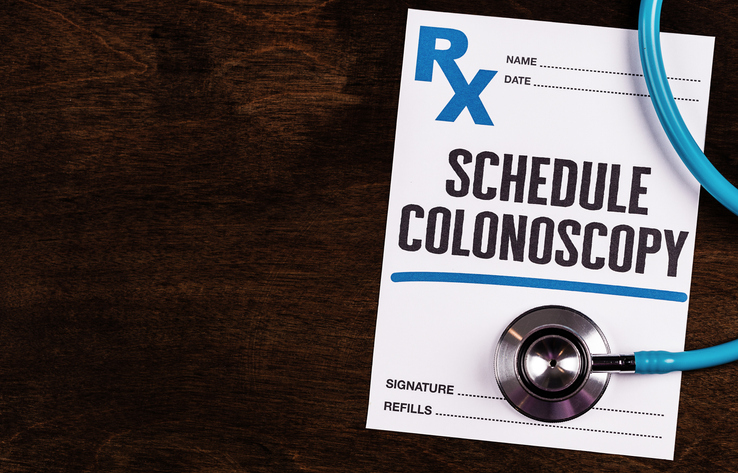Young Woman Refused Colonoscopy For Several Months. Discovers She Has Colon Cancer and Lynch Syndrome

By Joy Stephenson-Laws, JD, Founder
The following story is not only very sad but also, in my opinion, incredibly infuriating.
A young, African-American woman named Ashley Teague started losing weight back in 2019. Teague was 28-years-old at the time.
“Perhaps, Teague thought, the vanishing pounds reflected her improved mental and physical health. Never mind that she was working late nights as a bouncer and hadn't changed her diet or exercise routine,” according to this report from Insider.
“But about a year later, Teague, a freelance photographer and mom of two in Indianapolis, started to worry. She was down 25 pounds, had suffered a severe and unexplained side pain while working a Super Bowl shoot, and everything she ate ran right through her. She had diarrhea up to seven times a day.”
Teague said she knew something was very wrong, but it took around six to seven months for her to convince her doctor to finally give her a colonoscopy. Rates of colon cancer in young people are also on the rise.
The American Cancer Society reports that African-Americans are about 20 percent more likely to get colorectal cancer and about 40 percent more likely to die from it compared to other groups. Teague should have been granted a colonoscopy as soon as she asked for it. I actually believe that the doctor should have given her one without her even asking.
There is so much more to this story. According to the report from Insider, clinicians said she had irritable bowel syndrome and gave her medication for her weight loss, pain and diarrhea. A month later she was still experiencing these symptoms in addition to having bloody stool. But because her bloodwork came back normal and she “looked healthy” and was well under the age of 48, her request for a colonoscopy was denied. (Many medical professionals are recommending getting a colonoscopy much younger, especially if the person falls within a higher risk group).
After finally having the colonoscopy, Teague discovered that she had a tumor in her colon the size of a baseball.

Lynch Syndrome
Teague told her team of doctors that her mother was a cancer (kidney and breast) survivor and has Lynch Syndrome, a genetic condition that increases the risk of developing several types of cancer. The CDC reports that Lynch syndrome is the most common cause of hereditary colon cancer. Teague had a 50 percent chance of inheriting Lynch Syndrome herself, giving her a 40 to 60 percent chance of developing colorectal cancer in her lifetime.
“But clinicians didn't test her for the condition, she said, and just told her to ‘lay off spicy food’ and change her diet since a CT scan hadn't detected any problems,” according to Insider.
“It wasn't until Teague learned her father had recently had cancerous polyps removed from his colon, and told her doctors that, that she was fast-tracked [finally!] to a colonoscopy.”
Teague had to undergo surgery, having more than four and a half feet of her colon removed. She was also tested for Lynch Syndrome and discovered she had that as well.
“According to Yale Medicine, people who know they have Lynch syndrome typically begin colon cancer screenings in their 20s and repeat them every year or two,” according to Insider.
Fortunately, Teague, a mother of two, survived the cancer and is now armed with the information to be as proactive as possible. She is considering a hysterectomy in order to prevent uterine cancer, another cancer that she has a higher risk of developing due to having Lynch Syndrome. I think she did a great job advocating for herself, but, unfortunately, I think a lot of factors (age, race, appearance) put her in an unfair situation where her condition was not taken as seriously as it should have been. It’s shocking to me that she was told because she looked healthy that she didn’t need a colonoscopy. You can never judge a person’s health (both physical and mental health) just based on what they look like.
How common is Lynch Syndrome?“In the United States, it is estimated that 1 in 279 individuals have a genetic variant (also known as a mutation) associated with Lynch syndrome,” according to the National Institutes of Health (NIH).
Genetic Testing
I would bet that many people have never even heard of Lynch Syndrome. Genetic testing has allowed me to have invaluable insight into my DNA and know if I have cancer-causing alterations in my genes. I highly recommend genetic testing so that you can be as proactive as possible.
Be Proactive
Check out these pH Labs blogs:
- 5 Tips for a Healthy Colon
- It’s Not the Sexiest Topic, But Let’s Discuss Colonoscopies
- You’re Not Too Young To Get Colorectal Cancer
- American Cancer Society’s Updated Guidelines In Cancer Prevention
Enjoy your healthy life!
Disclaimer: This article is not intended to provide medical advice. Please consult with your doctor or another competent healthcare practitioner to get specific medical advice for your situation.
The pH professional health care team includes recognized experts from a variety of health care and related disciplines, including physicians, attorneys, nutritionists, nurses, and certified fitness instructors. This team also includes the members of the pH Medical Advisory Board, which constantly monitors all pH programs, products, and services. To learn more about the pH Medical Advisory Board, click here.







